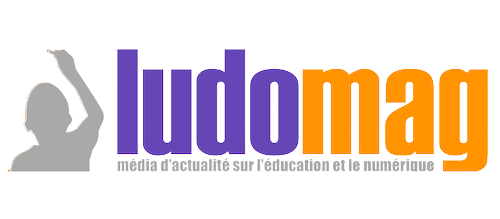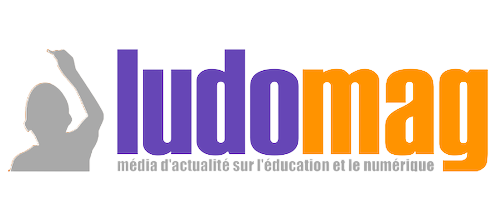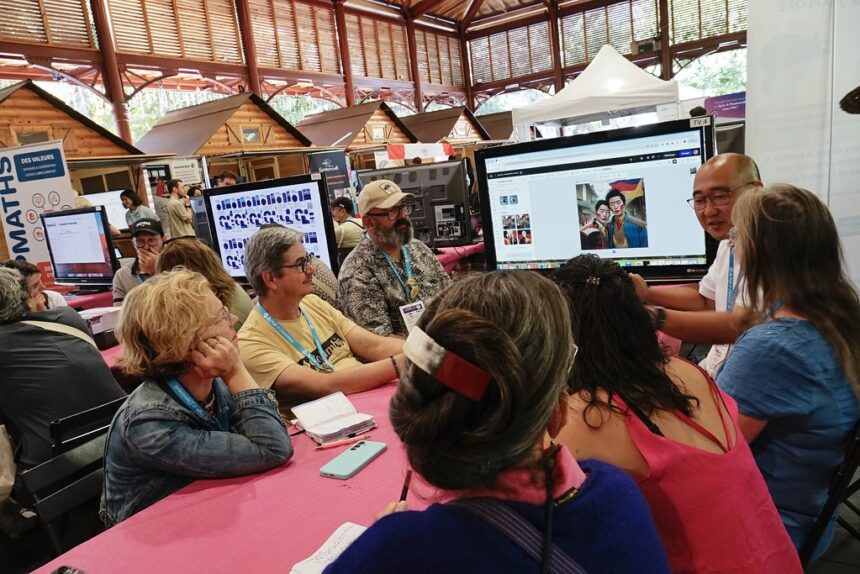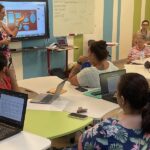EVENT 🚀 Who hasn’t dreamed of improving student participation and attention in class? Does technology hinder this goal, or can it help achieve it when used wisely? These will be the key questions and discussion points this summer during the 22nd edition of the LUDOVIA Summer University.
In an educational landscape increasingly shaped by digital integration, student attention and participation are being redefined through new dynamics. Technologies such as educational games, interactive resources, robotics, and tablets are transforming how students engage in class. Specific tools and applications also help re-engage students regularly during lessons, yielding significant results when teachers know how to use these « tips »—small tools that foster this engagement.
Here are some examples of how digital tools contribute to enhanced student participation:
- Stimulation through Educational Games
Digital games capture attention with their immersive and entertaining qualities. They foster intrinsic motivation and active learning, though they can also lead to distractions if not properly managed. - The Richness and Variety of Digital Resources
Interactive multimedia content such as videos, quizzes, and simulations makes lessons more engaging and stimulating, thereby boosting curiosity and participation. - Robotics
Activities involving robotics encourage problem-solving and collaboration, while engaging students through hands-on, practical applications. - Individualized Learning
With AI and adaptive platforms, students can follow personalized learning paths tailored to their pace and needs, enhancing focus and engagement.
However, educators must strike a balance when using these tools. Excessive or poorly managed use can reduce social interaction and harm concentration. A thoughtful integration of technology, combined with appropriate teaching methods, ensures greater attention and active participation in the classroom.
The Negative Impact of Digital Tools on Student Participation
While digital tools offer enriching educational opportunities, they can also interfere with student participation, both in class and at home during homework.
- Digital Distractions
Devices like tablets and computers expose students to distractions (e.g., games, notifications, off-topic browsing), undermining their focus and engagement. - Cognitive Overload
The abundance of information and interactive content can overwhelm students, reducing their ability to concentrate on essential tasks. - Inequality in Access and Skills
Disparities in access to technology or digital literacy can marginalize some students, hindering their active participation in class. - Reduced Human Interaction
Excessive reliance on digital tools can limit oral and collaborative exchanges, reducing opportunities for social learning.
Launching the 2025 Session on Digital Education
With these examples, we kick off the 2025 session of reflections on the use of technology in education, focusing on student attention and participation in the classroom.
The new LUDOVIA.fr website has been live since January 6th and will progressively allow all stakeholders in this Summer University to join forces with us to make the 22nd edition a success!
Since early January, the first partners and exhibitors have begun pre-registering (about twenty partners so far, listed on the event’s website). The call for scientific contributions will be announced in a few days, inviting participants to present research on the topic. Local authorities and educators will follow in February/March with proposals for explorcamps, beginner workshops, and local authority seminars.
What’s New for the 22nd Edition?
- Creation of a « Ludo-Educational Games Space »
- Creation of an « International Space » to explore practices in other countries
- The « First Steps Guinguette » moves closer to the « Start-up Space »
- Hybrid Participation
In the meantime, to immerse yourself in the LUDOVIA atmosphere—or if you’ve never had the chance to join the movement—take a moment to visit the newly revamped LUDOVIA website! You can also (re)discover the community on ludovia.org and follow us on BlueSky Social.
More info: www.ludovia.fr








